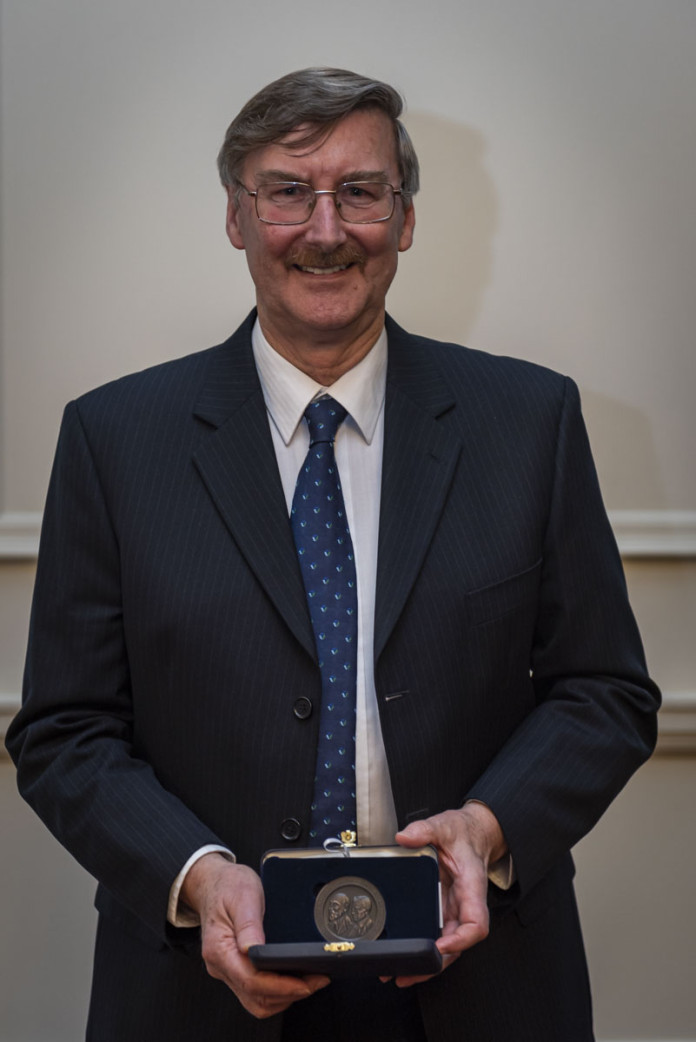New Zealand
October 13, 2023
Grasslanz Technology Ltd (GTL) recently turned 20 years old. Chief executive John Caradus says the Research and Development company is perfectly positioned for further growth over the next two decades.
Interviewer: Hi John. GTL has reached an important milestone. For those unfamiliar with the business, what does it do, and did it get started?
John Caradus: GTL started as a business unit inside AgResearch, called the Cultivar, Development and Management Unit. Essentially it licenced forage cultivars, generally for clients involved in the pastoral sector who for that pleasure paid a royalty. The unit then used that income to invest in further breeding of new cultivars, and things really grew from there.
Interviewer: How steep has GTL’s growth curve been?
John Caradus: The business unit was turning over about $3 million a year when it was incorporated. We've now turnover about $12 million per annum. Our product range has changed quite a bit in that time from forage cultivars through to Epichloë endophytes in grasses, and now moving forward, we're looking at microbial bioprotectants as the next suite of technologies that will continue to build our impact.

Grasslanz Technology Ltd chief executive, John Caradus.
Interviewer: We’ll talk about the future shortly but what has been the key to GTL’s growth?
John Caradus: If I had to give you one answer to that question, I would say it's the people that we have at Grasslanz. They have made it a success without a doubt. We only have 14 staff, because we outsource much of the work we need to be undertaken. We outsource our Research and Development work largely to AgResearch, but not solely. We don't do any manufacturing and sales. We license out the technologies to companies that are much better than us at manufacturing, selling and marketing. We’re all about partnering and our staff have been able to build extensive and long lasting networks, trust with customers, and that has been in place in many cases for decades which has enabled us to continue to seek new opportunities.
Interviewer: How do you know what your key customers, farmers, need given the rapid evolution in the pastoral sector over the past two decades?
John Caradus: We're providing solutions to real problems, principally on-farm. Some ideas on how to do that come directly from farmers, some of them from seed companies that we license our products through, and some of them from researchers, who come to us with ideas. So we end up having to weigh up how we invest in R&D in the most effective way, and because we actually don't employ scientists on a day-to-day basis. That means we can identify the best capability to contract the work to, but also manage the size of that contract so that it is within our means. We've been very astute over those 20 years at doing that. We've never made a financial loss once.
Interviewer: It must be gratifying to see science have real impact on-farm?
John Caradus: It is. Because of our industry links and commercial focus, we act as a bridge between the research community and farmers. Without the world leading science we contract, we wouldn't be able to deliver the technologies and products that we have been able to. It's as simple as that. So for us AgResearch is very important. We have our staff based on AgResearch sites. We lease AgResearch farmland to do our early high grade seed production (in Lincoln). We're integrated into their suite of systems. We use their IT, their HR, their accounting systems. So from an operational point of view, AgResearch is a solid base for us. Our partnership with seed companies is reliant on ensuring that we provide solutions to real problems that they can make money out of. We get feedback through farmer organisations and that is important to us to make sure that the technologies that we are providing are in fact working appropriately, and if not, we work to rectify them. But as I said, science excellence underpins everything we do.
Interviewer: What does the future hold for GTL?
John Caradus: Epichloë endophytes really came on stream in the early 2000s and we've reached a sort of plateau from that technology. The next tranche of activity is in two areas. The first is microbial bioprotectants; that’s biopesticides, biofungicides and biostimulants.
They still are regulated, but less so than the other area that we're investing in, which is genetically modified organisms, and gene edited organisms. Our current legislation here in NZ is holding us back from using them and NZ is becoming an outlier internationally in that particular space. But we will still continue to work and invest. Our core business is still in the Epichloë endophyte space, but we are positioning our business for the future too.
Interviewer: Finally how did you celebrate the 20 year milestone?
John Caradus: We invited in a number of guests and held a half-day seminar and discussed what we have achieved over the last 20 years, and what the future will look like. It was great to reflect on our great little company and get together with all those that could make it. We’ve received a lot of support and positive feedback, including from offshore, where we also do a lot of work.
Interviewer: Thanks John. We’re out of time so let’s discuss GTL’s offshore work in our next interview. If readers want to know more about GTL they can head to your www.grasslanz.com. Thanks again and congratulations, John.